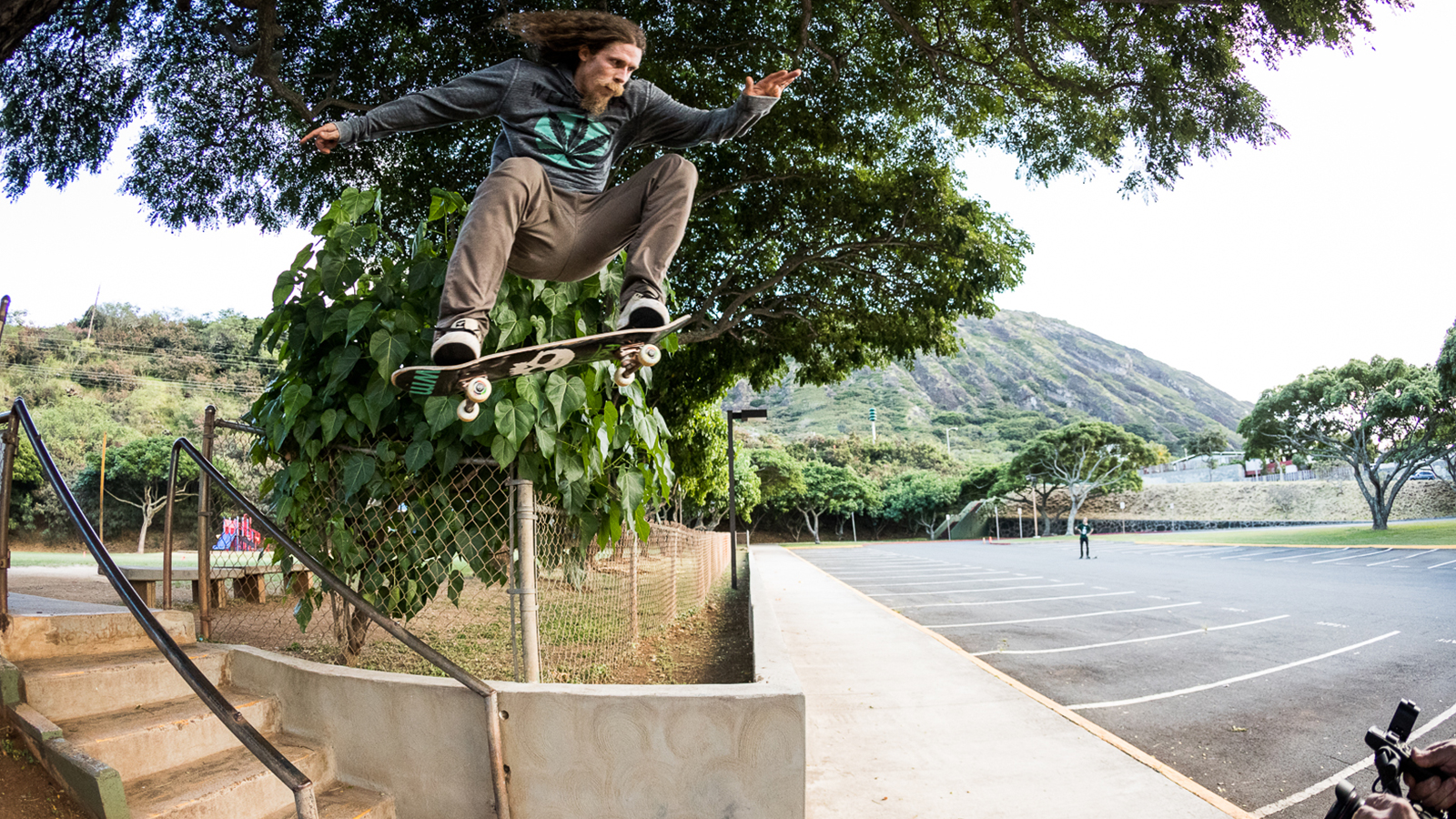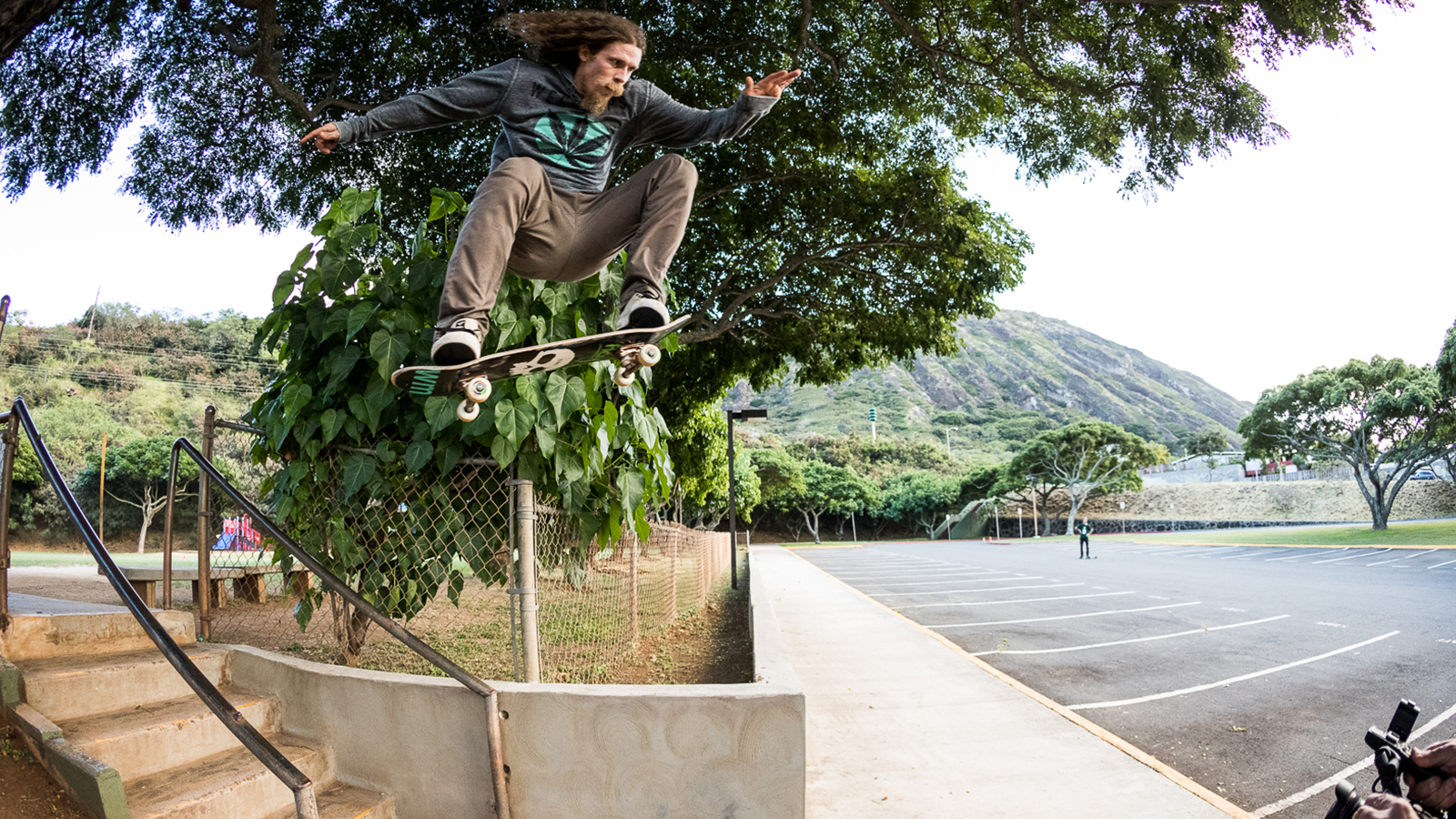
It was a burning question the moment the International Olympic Committee (IOC) announced in August 2016 that skateboarding would make its debut at the 2020 Olympics in Tokyo: How long before a world-class skateboarder tested positive for cannabis?
Then, the U.S. Anti Doping Agency (USADA) on Jan. 22, 2019, released a statement that 19-year-old Cory Juneau had accepted a six-month suspension for testing positive for THC. Juneau was tested by one of USADA’s partner organizations and fellow signatory to the World Anti Doping Code, the Brazilian Anti Doping Agency (ABCD), on Jan. 28, 2018, at the Oi Park Jam in Itajaí, Brazil.
Juneau was initially issued a six-month suspension from any competition after the date of the event. After completing a USADA anti-doping course, Juneau had his sanction reduced to a three-month period that expired on April 28, 2018, according to a press release by the agency.
“It’s for nothing,” Ross Rebagliati, a Canadian Olympic gold medalist snowboarder, told Weedmaps News. “It’s going to cause severe anxiety and potentially change the course of his life.”
Cannabis and the Olympics
Cannabis was not added to the list of banned substances until 1999, when snowboarder Ross Rebagliati embarrassed the International Olympic Committee (IOC) by winning a gold medal at the 1998 Winter Games in Nagano, Japan, only to test positive for trace amounts of a THC metabolite. Rebagliati was publicly stripped of his medal, but it was returned 36 hours later, when the IOC discovered that cannabis was not actually on the banned substance list.
The threshold for THC metabolites were initially set at 15 nanograms per milliliter, under the 17.8 nanograms per milliliter found in Rebagliati’s urine. Rebagliati maintains the result was the result of secondhand smoke. A nanogram is one-billionth of a gram.
In 2012, American judo competitor Nick Delpopolo was ejected from the 2012 London Games after accidentally eating a marijuana-medicated brownie. The following year, World Anti-Doping Agency (WADA) raised the threshold to 150 nanograms per milliliter. It has been widely reported that a competitor would have to be a “pretty dedicated cannabis consumer” to test positive under the new requirements.
The Olympics’ Affect on Cannabis in Skate Culture
In an essay for Medium published Oct. 8, 2018, Tony Hawk outlined the arguments for and against the inclusion of skateboarding in the Olympics. Skaters will always be judged on ability, Hawk argued. The community must also consider the opportunity to present skateboarding in a positive light, the potential it holds for young people in developing countries, and the recognition it will bring.
But there are also major reservations. “Will we hear Dead Kennedys blasting from the sound system?” Hawk asked.
Like music, cannabis is deeply woven into the story of skateboarding and its popularization. Skateboarding has always had a conflicted relationship with both the law mainstream culture, and skateboarders have a history of ignoring rules they see as unjust.
Boo Johnson is a member of Weedmaps Sports’ pro skate team. (Photo by @blair_alley)
Most skating competitions, including the X Games, do not have a history of testing participants, and it remains unclear why Juneau was tested at Oi Park Jam.
Some Olympic competitors must submit their whereabouts to WADA in order to test for anabolic agents, which are banned in- and out-of competition, with a short test window. But cannabis is banned only in competition, defined as 12 hours before the start of activity.
A substance may be considered for WADA’s prohibited list if it meets two of three criteria including performance enhancement, health risk, and violating the “spirit of the sport.” Notably, the most recent guidance from USADA acknowledges that cannabis may serve as a performance enhancer in-competition for its pain-relieving, muscle-relaxing, and anxiety-reducing properties.
Other major-league sports organizations — NFL, NBA, MLB, and NHL — are grappling with the spreading support for marijuana as an effective medical alternative to opioid-based painkillers and the recreational and medical legalization of cannabis in many U.S. states.
It also cites potential risks to athletes’ respiratory, cardiac, and mental health. But Rebagliati sees an inconsistency.
“When we partied in Nagano after I won, we drank our faces off in our room. You’re allowed to smoke cigarettes,” Rebagliati said. “You’re allowed to be unhealthy as an athlete.”
Feature image: Tommy Sandoval is a member of Weedmaps Sports’ Skate team (Photo by @blair_Alley)











